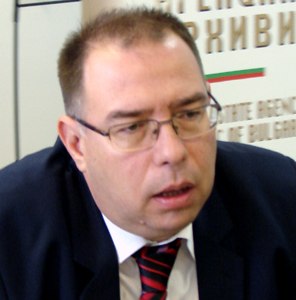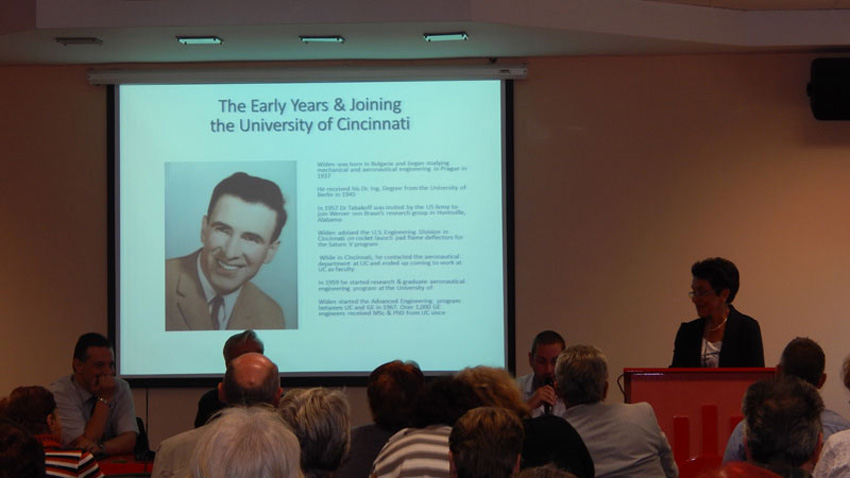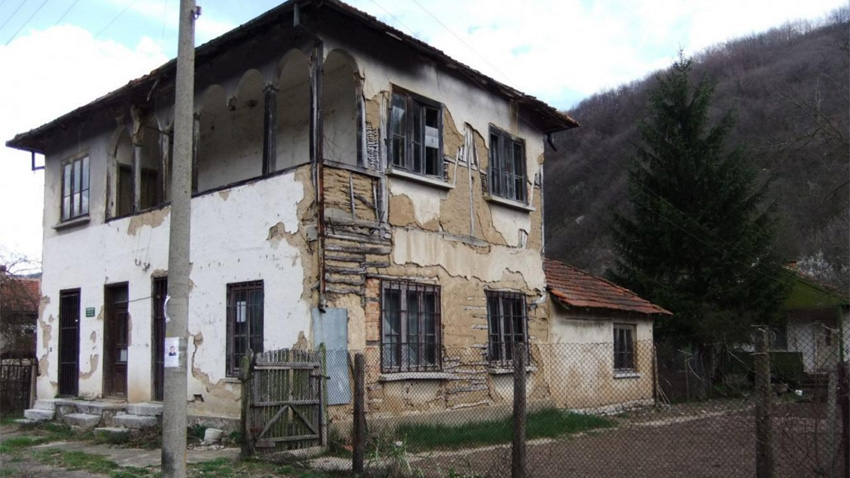The bright minds of different Bulgarians have contributed to progress of mankind across different spheres. Many of those were scattered around the globe with no right to return during communism and today we are proud of their names. But we can only imagine what the cost was of the forceful split with their motherland.
One of those bright minds was born in 1919 in a remote small village somewhere in the Northwest, but was destined to reach the stars. The Archives State Agency has recently received personal documents of Bulgarian Prof. Viden Tabakov, who participated in the US space program that sent the first human to outer space.
 “Prof. Viden Tabakov was born in the village of Stakevtsi, Belogradchik region, but then he studied engineering in Prague, rapidly making his way through the engineering team of the Third Reich,” says Chair of Archives Mikhail Gruev. “In 1945 he graduated aircraft construction and defended his PhD in engineering in Berlin. He was then noticed by head of the Reich’s missile program Wernher von Braun. After the surrender of Germany Viden Tabakov emigrated to Argentina. The USA opted at this time for cooperation with ex-Nazi experts who could assist them through the Cold War coming. Thus they reached von Braun who remembered his former colleague and invited him to join the Apollo space project. Viden Tabakov began to work for the Americans and made friends with Neil Armstrong – the man who first stepped on the Moon in 1969. Then he became a scientific supervisor to the astronaut at the Space Exploration Institute in Cincinnati, where he worked and lived till the end of his life. Prof. Viden Tabakov died in 2015.”
“Prof. Viden Tabakov was born in the village of Stakevtsi, Belogradchik region, but then he studied engineering in Prague, rapidly making his way through the engineering team of the Third Reich,” says Chair of Archives Mikhail Gruev. “In 1945 he graduated aircraft construction and defended his PhD in engineering in Berlin. He was then noticed by head of the Reich’s missile program Wernher von Braun. After the surrender of Germany Viden Tabakov emigrated to Argentina. The USA opted at this time for cooperation with ex-Nazi experts who could assist them through the Cold War coming. Thus they reached von Braun who remembered his former colleague and invited him to join the Apollo space project. Viden Tabakov began to work for the Americans and made friends with Neil Armstrong – the man who first stepped on the Moon in 1969. Then he became a scientific supervisor to the astronaut at the Space Exploration Institute in Cincinnati, where he worked and lived till the end of his life. Prof. Viden Tabakov died in 2015.”
The challenge that he faced during the Apollo project was related to high atmosphere temperatures. Those could blast the rockets, but the Bulgarian scientist found a solution by inventing metallurgical coating for the rocket’s turbine blades. So, Apollo 11 was able to land on the Moon.
According to Prof. Awatef Hamed, head of the University Lab in Cincinnati, established by Prof. Tabakov, the late Bulgarian had achievements in different areas – energy studies, aircraft engineering, lots of aviation technologies. “He had his contribution on land, in the air and on water. Aircraft engines were wanted in the air, the diesel ones were wanted for the ships at sea. Prof. Tabakov made engines safer, faster, cheaper, environment friendly and fuel-saving.”

Few foreigners have become honorary professors of NASA – but Viden Tabakov got this recognition in 2012. However, when he returned to Bulgaria after the end of communism, the academic circles didn’t hail him, ignored him and never invited him to a public event. At the same time the professor opened his soul for his birthplace. Then, during his final days and in the fight with Alzheimer he would utter words of remembrance for these spots. We will remember his painful confession before his county mate Prof. Borislav Toshev: “It wasn’t possible for me to return to Bulgaria after the war. They would have sent me to a labor camp and perhaps in a few years I would have become the chief engineer of the people’s agricultural farm in Stakevtsi. However, I would have never received a better job in Belogradchik…”

The archive of a remarkable Bulgarian is now in Bulgaria, but no scientist has shown interest yet, Mikhail Gruev goes on to say. The house where the professor was born is now in ruins. And since the state neglects the memory of its geniuses, a citizen has taken over to turn his home into a museum. “Prof. Tabakov carried with him things from his childhood years in Germany and Argentina and I hope those will come back to Bulgaria,” Boyan Minkov says.
English version: Zhivko Stanchev
Aleksandar Vučić offers the opposition an advisory referendum on his presidency Serbs do not believe that the solution to the political crisis in the country could be an "advisory referendum" on confidence in the president, as requested by the..
Methodological assistance, teacher training, meetings and educational programs in Bulgarian language and culture for students – these are just some of the ways in which the academic community of Veliko Tarnovo University "St. Cyril and Methodius" reaches..
The Botanical Garden's Tropical Greenhouse will be open to visitors from 16 to 26 January, every day from 10 am to 4 pm. More than 30 varieties of azaleas, some of which once adorned the Royal Palace, will be in bloom. Blueberries, rhododendrons, ericas..
After almost 80 years, a new breeding colony of the endangered Dalmatian pelican has appeared in Bulgaria . The birds have settled on artificial islands..

+359 2 9336 661
